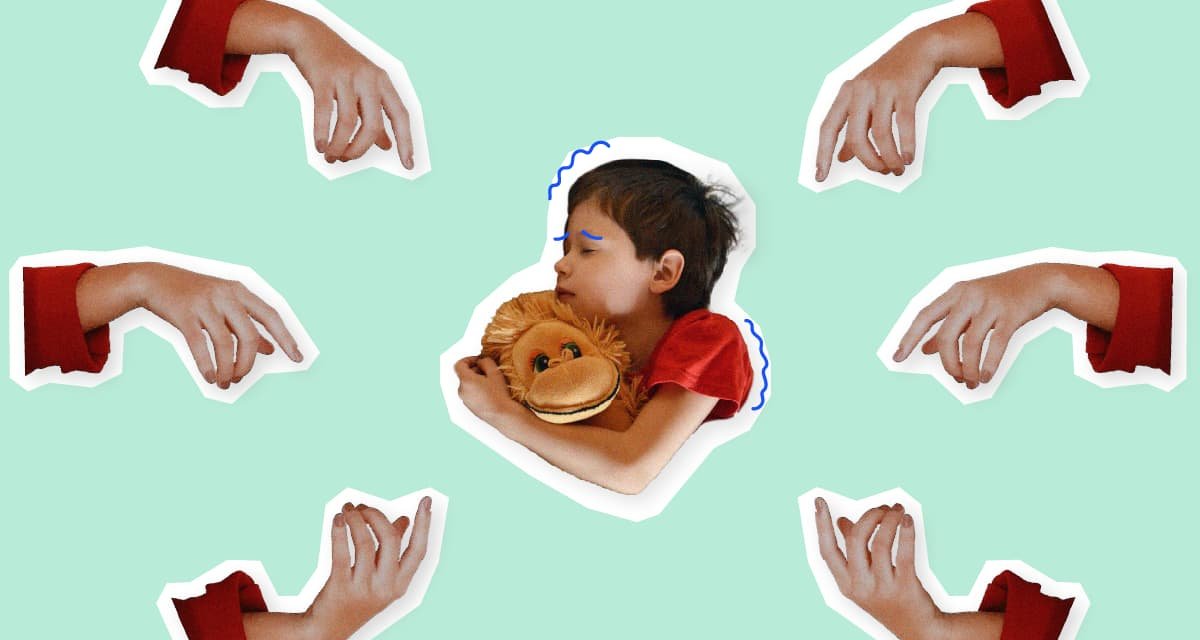What is sleep paralysis?
Sleep paralysis, which is related to parasomnia, is one of the sleep disorders that can appear during the falling asleep phase or during the waking phase (i.e., at the beginning or end of the sleep cycle).
During the paralysis state, the individual is unable to move or speak. This phase can last a few seconds or even a few minutes. It is usually accompanied by hallucinations.
While this disorder may seem worrisome, it’s not serious, and most importantly, it’s quite common. It affects 20 to 30 percent of the population and particularly affects adolescents and young adults.
What are the symptoms of sleep paralysis?
How to recognize sleep paralysis?
As the name suggests, sleep paralysis means that the person is unable to move or speak. It is as if they are trapped in their own body, yet they are aware of and witness what is happening, as only the respiratory and ocular muscles are functioning.
Here are the symptoms:
- The feeling of not being able to move (when falling asleep or waking up)
- A feeling of oppression
- Awareness of one’s environment
- Hallucinations (e.g., feeling that someone is watching and approaching)
- Intense fear
- The feeling that you might suffocate.
Most often, paralysis is accompanied by a feeling of a hostile presence near you or in the room. You may also have the sensation of someone or a force pressing on your chest. Rest assured: this is due to the feeling of pressure and lack of breathing.
All of these symptoms are real sources of anxiety, and in some cases, they can lead to insomnia. The fear of experiencing sleep paralysis may imply that the person is simply afraid of falling asleep.
Sleep paralysis with hallucinations
Besides the sensation of a hostile presence in the room, sleep paralysis may be accompanied by other sensory hallucinations such as:
- Auditory hallucinations (cracking, footsteps, etc.)
- Visual hallucinations (perception of light or objects)
- Kinesthetic hallucinations (vibrations, sensations of falling or, on the contrary, of levitation).
Sleep paralysis with a nightmare
Sleep paralysis is a kind of lucid nightmare. The body is paralyzed while the mind is alert. It is a true waking nightmare.
Sleep paralysis: how long?
An episode of sleep paralysis can last from a few seconds to a few minutes. However, these phases can last for months or years, depending on the individual. It is a disorder that particularly affects people between the ages of 18 and 35.
Who should I consult for sleep paralysis? Teleconsultation?
If you suffer from sleep paralysis, you can talk to your doctor, who may refer you to a sleep disorder specialist, a somnologist. You can also schedule a teleconsultation appointment to receive advice and guidance on your situation.
What are the causes of sleep disturbance?
Paralysis and REM sleep
First of all, it is important to note that the body usually enters sleep paralysis during the REM sleep phase. This phase occurs at the end of the sleep cycle, when we dream a lot.
During REM sleep, the body produces glycine, a neurotransmitter that prevents muscles from moving. This is why we can feel paralyzed.
Sleep paralysis occurs because the body’s motor functions are abnormally inhibited upon waking. In other words, the waking mechanism is triggered prematurely. We then enter a phase of waking dreaming (or rather, nightmares).
Why do some people suffer from sleep paralysis?
We have seen that sleep paralysis occurs during REM sleep and is not serious. However, it is not a normal condition.
Sleep paralysis can be caused by:
- Occasional or chronic anxiety (one of the leading causes of sleep disorders)
- Stress and overwork at a particular time in one’s life (moving, new job, bereavement, etc.)
- Trauma (such as assault)
- A depressive state
- Lack of sleep.
Lying on your back promotes sleep paralysis.
What are the risk factors?
Psychological disorders, stress, fatigue, lack of sleep, or chronic anxiety are the main risk factors for sleep paralysis .
How to diagnose and treat this problem?
To be able to consult and diagnose this disorder, it is first necessary to be able to put words to it. Therefore, it is important:
- To be able to recognize that it is sleep paralysis (by researching, for example, by reading this article)
- To know that you can’t die from it.
This information can greatly relieve people who suffer from it.
Techniques to avoid sleep paralysis
The technique to avoid suffering during sleep paralysis is to let yourself go while trying to think of something pleasant. You can imagine a beach, a happy memory, etc. This technique aims to relax the mind, but also the muscles, and can lead to falling asleep or waking up gently.
When to consult?
If sleep paralysis is rare, it is not necessary to consult a doctor. On the other hand, it becomes important to make an appointment when the episodes are too frequent and difficult to manage. Indeed, if the technique stated above does not work and if you have taken measures to avoid risk factors (not depriving yourself of sleep, treating a trauma, etc.), you should consult your regular doctor, who will probably refer you to a sleep specialist.
What exams?
The sleep specialist can diagnose and treat sleep paralysis. The latter will:
- Listen to the patient
- Ask him to analyze:
– his paralysis
– the consequences
– the potential consequences.
There is no necessary examination. The diagnosis is based on the clinical interview.
What treatment?
Depending on the causes of paralysis, there are several possible treatments:
- If depression or anxiety is the underlying cause of sleep paralysis, then the doctor may prescribe antidepressants or anxiolytics.
- If there is no predefined cause, the doctor will ask the patient to try new sleeping positions, to go to bed at the same time every night, and above all, to get enough sleep.
- The patient may also be asked to practice relaxation techniques and maintain a healthy diet. This includes avoiding tea, coffee, alcohol, and products high in sugar.
To remember 💡
Sleep paralysis is a common disorder affecting 20 to 30% of the population, particularly young adults. It manifests as a temporary inability to move or speak when falling asleep or waking up, often accompanied by hallucinations.
To do ✅
If you experience an episode of sleep paralysis, try to relax by thinking about something pleasant. If the episodes become frequent, consult your doctor, who may refer you to a sleep specialist for further evaluation.
To be continued 👁️
Causes can vary: stress, anxiety, lack of sleep, or sleeping position. It’s essential to adopt a good sleep routine, avoid stimulants before bed, and seek medical advice if the problem persists to determine the appropriate treatment.























+ There are no comments
Add yours